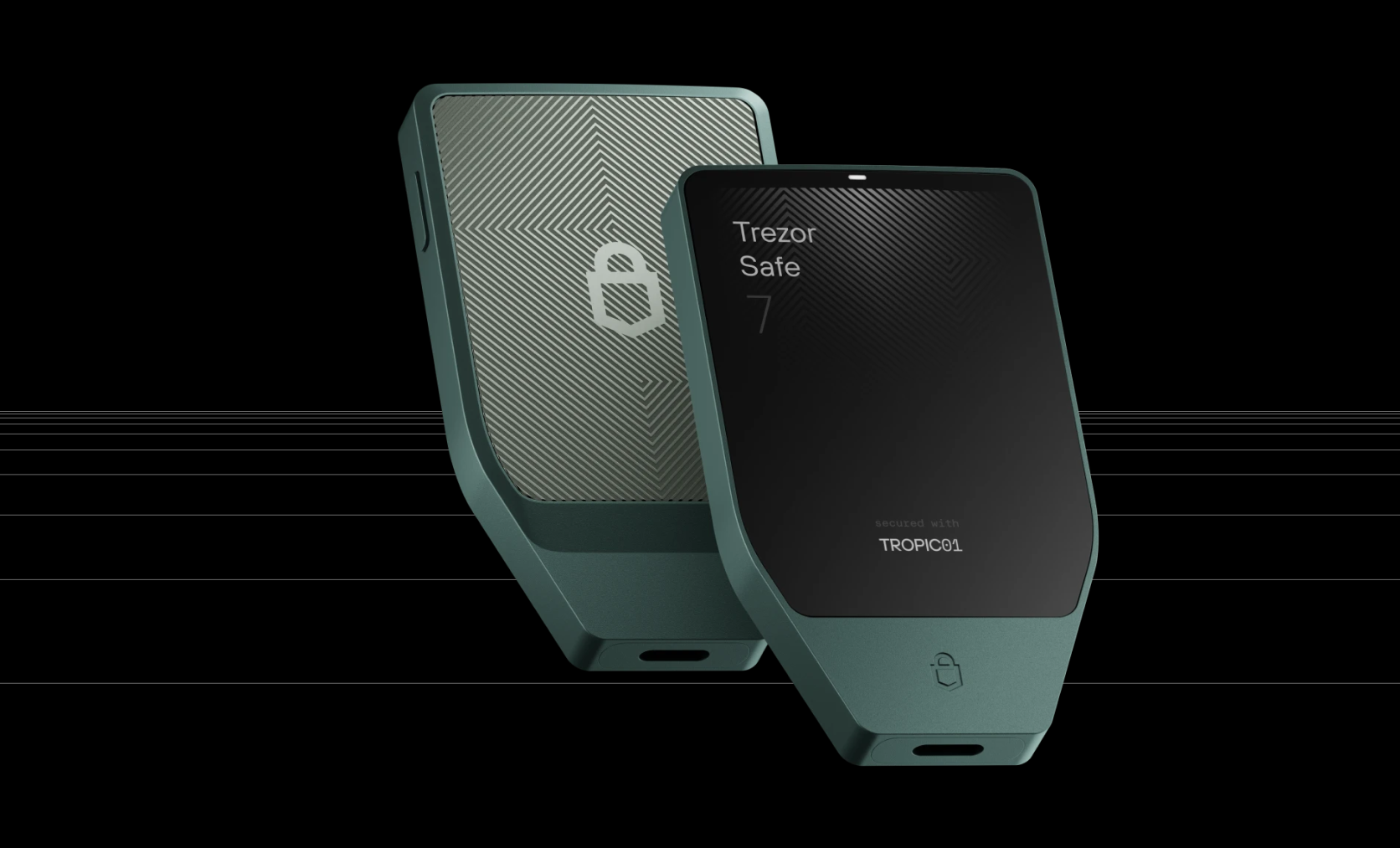A smooth entry into the world of cryptocurrencies for everyone!
Invity, a self-funded startup founded in 2019 under the SatoshiLabs Group, is launching a new app for its users. Having already facilitated over $100 million in cryptocurrency transactions during 2021, with expectations to surpass $1 billion this August, the company reaches yet another milestone.
Known as a cryptocurrency exchange aggregator, Invity offers a complete ecosystem for buying, selling, exchanging, and spending cryptocurrencies, including dollar-ost averaging (DCA).Their latest addition is a mobile app that simplifies Bitcoin purchases. Additionally, the app provides access to a planned educational academy.
"The mobile app will enable us to introduce Invity to a broader audience of newcomers. To maximize our reach, we are focusing on creating a user-friendly experience and providing educational resources within the app. Security is also a top priority. Our efforts are directed at ensuring users can securely store their cryptocurrencies in their own wallets, eliminating the need to depend on us or any other third party."
comments Stepan Uherik, CEO of Invity and CFO of SatoshiLabs.
Academy as a gateway to hardware wallets
As part of the app, Invity intends to offer users an educational academy. The aim is to effectively assist newcomers in navigating the field, gradually guiding them toward more advanced features and enabling them to manage cryptocurrencies knowledgeably and independently. Additionally, the importance of storing cryptocurrencies in a personal crypto hardware wallet is highlighted.
In fact, Invity's services are directly integrated into the desktop and browser app of the Trezor hardware wallet within the Trezor Suite. This offers Trezor users a seamless, secure, and comfortable experience when trading and managing their cryptocurrencies. The emphasis on security is further reinforced by the inclusion of only non-custodial exchanges. This ensures that any purchases made do not remain on the exchange but must be immediately transferred to a user’s Trezor.
"As a result, users maintain complete control over the cryptocurrencies they possess. Given the frequent occurrence of exchange crashes and an unpredictable regulatory environment, it is crucial to advise new crypto investors against entrusting their digital assets to third parties for extended periods, let alone when dealing with substantial amounts,”
Uherik adds.

The word on the street
View all news
Vexl appoints new CEO Viliam Klamarčík to lead global expansion and grow the P2P ecosystem
Vexl
2 min read
Vexl, a Czech app for peer-to-peer bitcoin without KYC (part of the SatoshiLabs group), is entering its next growth phase. Viliam Klamarčík takes over as CEO, with priorities including improving user experience, driving global expansion, and strengthening Vexl's presence in markets where bitcoin is actually being used.
“Vexl hasn’t been a small community side-project for a long time. We now have over 17,000 users and we’re growing rapidly in several regions at once. I want to strengthen execution while at the same time while making more room for strategy and scaling. It’s also crucial for me to keep Vexl true to the reason it was created – as a tool that lets people use bitcoin freely, without permission, without data collection, and without intermediaries,” says Viliam Klamarčík, CEO of Vexl.
From tech consulting and founding a startup to leading a non-profit
Klamarčík brings experience from technology and consulting, having worked in the Salesforce ecosystem before co-founding Bluez, a company he helped scale through to its acquisition by Rockaway Group.This mix of corporate and startup experience gives him a useful perspective: he understands how business works, while also knowing how to build a mission-driven project from the ground up – in Vexl’s case around personal and financial freedom.
He is now taking over the CEO role from Lea Petrášová, Vexl’s co-founder, who has led the company since 2021.
“I’m staying at Vexl as a strategic partner – the ‘spiritual mother’ of the project – and my goal now is to focus more on its long-term vision and strategy. That’s why I’m passing the baton to someone who deeply understands our product, our team, and above all our mission and philosophy. I believe Viliam will complement me perfectly and together we can grow Vexl into a truly significant global project where every user stays in control of the privacy of their money,” explains Lea Petrášová, co-founder of Vexl.
Growing network in Czechia and expansion abroad
Since launching in 2022, Vexl has grown to more than 17,000 users who together form millions of connections, a "Web of Trust." On Vexl, you don’t trade with complete strangers, but with people who are part of your broader social circle: your friends, friends of friends, and people connected through the shared communities. The highest number of trust connections is naturally among Czech users – almost 8 million – followed by Slovakia with 1.6 million, and Germany with just under half a million connections. “We’re now entering a growth phase that requires more operational management, tighter alignment across teams, ongoing product development, and further international expansion. In the long term, we want to bring Vexl to places where peer-to-peer bitcoin buying makes the most sense – regions where bitcoin is actually used, not just traded. In Europe, we’ll focus primarily on the DACH region and the UK, and we also want to grow in Africa and Latin America, where we’re already seeing strong organic demand,” adds Klamarčík.
New version of the app aims beyond the bitcoin-only crowd
Vexl is currently undergoing a redesign to make the app more intuitive and engaging. New community-focused features will help users better connect the social layer of the platform – including gamification elements and expanded language options. The new version will start rolling out in spring 2026 and is designed to deliver higher speed, improved security, and an overall better user experience.
Vexl’s goal is to be the first app people think of when they want to buy or sell bitcoin peer-to-peer without KYC. The planned updates are meant to appeal not only to existing bitcoiners, but also to so-called pre-coiners and no-coiners.
Backed by leading foundations
In January 2025, Vexl received a grant from the global non-profit Human Rights Foundation, which supported 20 projects worldwide. Vexl used the funds to further develop the app, improve its cryptography and security, and support local communities in Africa. Prior to that, Vexl received additional grants totalling 120,000 USD from the non-profit organization OpenSats.
-
About Vexl
Vexl is a mobile app that enables secure peer-to-peer bitcoin trading without the need for KYC (“know your customer”). It combines elements of social marketplaces and trust networks, allowing users to buy and sell bitcoin directly with one another. Vexl puts a strong emphasis on privacy, decentralization, and community collaboration. The project is part of the SatoshiLabs technology group and, as a non-profit initiative, represents a gift to the community with a clear mission: to take bitcoin out of the hands of institutions and put it back into the hands of people. More about Vexl at Vexl.it

Trezor Launches Trezor Safe 7: First Hardware Wallet With Transparent Secure Element
Trezor
2 min read
Fully wireless hardware wallet introduces the world’s first auditable secure element and quantum-ready architecture for next-generation protection
Trezor, the original hardware wallet company, has launched Trezor Safe 7, a new-generation hardware wallet that introduces several industry firsts: a fully auditable secure element (TROPIC01), and a quantum-ready architecture. It also features seamless mobile connectivity, making it easier than ever to manage crypto securely from anywhere.
With a vibrant color touchscreen, anodized aluminum unibody, and open-source firmware, Trezor Safe 7 is built to offer transparent, long-term self-custody without compromising on usability or design.
.png)
First transparent secure element
At the core of the device is TROPIC01, the world's first transparent and auditable secure element. Unlike conventional secure elements that rely on non-disclosed architecture, TROPIC01 allows the community to inspect, verify, and validate its design. This approach addresses a long-standing issue in crypto security: the need to trust proprietary hardware without insight into how it works.
.png)
Quantum-ready architecture
Trezor Safe 7 is also designed with the future in mind. Its quantum-ready architecture means the device supports quantum-secure updates, ensuring the device’s integrity and trustworthiness over time. When networks eventually upgrade to post-quantum security, you won’t need to replace your hardware wallet.
“Security has always been the foundation of everything we do at Trezor. With Trezor Safe 7, we're introducing TROPIC01, the world's first transparent and auditable secure element. It sets a new standard for both security and transparency in hardware wallets.
For years, I believed quantum computers belonged to science fiction, but the pace of innovation is changing that. Within the next decade, Bitcoin and other blockchains will have to move to post-quantum algorithms. It’s not a question of if, but when. That's why we built a quantum-ready bootloader into Safe 7. When the time comes, your device can be safely updated, even in a future where quantum computers pose a threat.
Combining this quantum-readiness with TROPIC01 sets a new standard for open, future-proof security. For us, it's always about protecting digital freedom with tools that are secure, usable, and transparent." added Tomáš Sušanka, CTO at Trezor.
Security without compromise
Trezor Safe 7 applies a layered approach to secure crypto storage. It features dual secure elements — the transparent and auditable TROPIC01 chip and NDA-free EAL6+ secondary element — ensuring physical and cryptographic protection. Private keys are kept completely isolated from the host system, while all sensitive actions must be physically confirmed on a 2.5” high-resolution color LCD touchscreen.
"At a time when convenience is pulling users toward custodians and ETFs, we believe it's more important than ever to reinforce what self-custody really means — full control, without compromise,” said Matěj Žák, CEO at Trezor. “Trezor Safe 7 is our answer: the first hardware wallet with a fully auditable secure element, dual-chip architecture, and wireless design built for the long term. It reflects everything we stand for — transparency, usability, and trust that doesn’t ask for permission. With this device, we’re making the safest option also the most intuitive, and raising the bar for what users should expect from crypto security,"
Designed for modern usability
Trezor Safe 7 supports Bluetooth Low Energy (BLE), magnetic Qi2-compatible wireless charging, and features a high-resolution color touchscreen. Bluetooth communication is secured via Trezor Host Protocol (THP), an open-source layer that ensures encrypted, authenticated, and private connections across mobile, desktop, and tablet. These hardware choices are paired with a robust aluminum unibody and Gorilla Glass protection, offering a seamless experience across mobile and desktop environments.
Through the Trezor Suite platform, users can manage thousands of coins and tokens, trade, stake, and access third-party integrations — all in one interface.
Trezor introduced the Safe 7 during a live event in Prague called Trustless by Design (TBD), giving the crypto community a first look at its new flagship. A full recording of the launch is available on the official Trezor YouTube channel.
.png)
Engineered for resilience
Trezor Safe 7 features a durable aluminum unibody, Gorilla Glass 3 display, IP54 resistant against dust and splashes, and a long-lasting LiFePO4 battery that delivers 4× more charging cycles than standard lithium batteries. A Bitcoin-only version is also available, designed for users who prefer a focused, bitcoin-only experience.
Trezor Safe 7 is priced at $249 (€249). The Charcoal Black and Bitcoin-only versions are now available for pre-order via the official Trezor e-shop, with Obsidian Green coming soon.
.png)
Shipping is expected to begin in four weeks. A full range of dedicated accessories is also available, including a Magnetic Qi2-certified Wireless Charger (free gift for preorders), a form-fitting vegan leather Case for Trezor Safe 7, a Trezor Universal Case for secure storage of any Trezor model, a Privacy Screen Protector with a 28° viewing filter, and a durable braided USB-C charging cable.
-
About Trezor
Trezor is the original bitcoin hardware wallet company, founded in 2013. It pioneered the development of self-custody for crypto assets, empowering individuals with an open-source device that enables secure and independent storage of cryptocurrencies.
Trezor has expanded to offer a range of hardware and software products that enhance user security, from crypto novices to experts. In 2023, the company launched Trezor Academy, an initiative aimed at educating grassroots communities about safe participation in the crypto ecosystem.Trezor is part of SatoshiLabs, a technology holding company focused on bitcoin and crypto innovation.

Tropic Square’s Secure Element Deployed in The Latest Trezor Crypto Hardware Wallet
Tropic Square
2 min read
Open Hardware Security Moves Mainstream - TROPIC01 becomes the world’s first transparent secure element to power a consumer device, establishing a new benchmark for open, auditable hardware security.
Fabless semiconductor company Tropic Square, today announced a major milestone with the integration of its open architecture secure element, TROPIC01, into the newly launched Trezor Safe 7 hardware wallet. This marks the first time an open and auditable security chip has been deployed in a mass-market consumer device, establishing a new benchmark for transparency as the foundation of trust in hardware security.
Hardware wallet industry founder Trezor leaned on Tropic Square early in the concept phase of its new-generation device to find a chip that was truly open and would provide an unprecedented level of protection for users’ data and digital assets.
Tropic Square and Trezor are among a new generation of companies challenging the decades-old model of security by obscurity. Their collaboration demonstrates how auditable and verifiable hardware can secure critical endpoints, having now created one of the most secure and forward-looking architectures in the crypto industry.
As connected devices are projected to surpass 31 billion by 2030 and cyber threats escalate, decentralized trust and verifiable hardware are becoming fundamental in meeting new security levels, regardless of the application or use case. Auditable endpoint protection is as relevant to hardware wallets as it is to securing personal identity systems, critical infrastructure, embedded AI and other edge applications. The integration of TROPIC01 into Trezor Safe 7 marks the first step toward broader adoption across hardware wallets and other core technology sectors.
“What we’ve achieved with Trezor is more than a product milestone, it’s a signal for the entire hardware industry that open and verifiable security is the only sustainable path forward,” said Jan Pleskac, CEO and Co-founder of Tropic Square.
“With Trezor Safe 7, we wanted to set a new standard for hardware wallet security. And thanks to TROPIC01, the world’s first transparent and auditable secure element, our product delivers one of the most robust security architectures in the industry,” said Matěj Žák, CEO of Trezor. “For us it was an obvious approach, one that we envisioned many years ago and that Tropic Square was able to deliver,” he added.

TROPIC01’s design for Trezor Safe 7 introduces the unique MAC&Destroy feature - mechanism that prevents brute-force attacks by irreversibly limiting PIN attempts and destroying authentication tokens after repeated failures. Combined with TROPIC01’s built-in anti-tampering sensors and physical security defenses, this ensures that secrets remain secure even under physical assault, a critical safeguard for devices that protect digital assets.
Tropic Square released its flagship chip TROPIC01 in February 2025 and recently moved into full production and worldwide availability. The open design philosophy has sparked a fundamental shift away from the industry’s traditional reliance on blind black box architecture to one that allows device integrity. This new wave of security chips allows manufacturers to verify what runs inside the devices they produce. With TROPIC01, companies can now audit down to the silicon level, ensuring there are no undocumented features, backdoors, or hidden vulnerabilities.
Tropic Square's open security approach and unique security mechanisms align with evolving regulations such as the EU Cyber Resilience Act (CRA), which emphasize transparency, accountability, and open vulnerability disclosure. Tropic Square’s peer-reviewed, continuously improving design model anticipates these changes by making adaptability and community-driven verification core features of its security platform.
“Trust in technology must be earned through a user’s ability to verify what’s beneath the surface. TROPIC01 does that by allowing device makers to truly see what’s inside their devices and to continuously adapt to new threats. A line of defence that is impossible under closed, proprietary models,” said Pleskac.
TROPIC01 is now shipping globally with next-day delivery, no NDAs, and no barriers. Available on development boards like Raspberry Pi, Arduino, Mikroe, and a new USB-C version you can get production-ready boards and samples today through our networks of partners or via the website.
-
About Tropic Square
Tropic Square is a European fabless semiconductor company on a mission to fix what’s broken in hardware security. Unlike traditional closed-source chips, we design and manufacture secure elements that are fully open, auditable, and continuously tested. We invite anyone to inspect, attack, and verify them. Our flagship product, TROPIC01, empowers developers to build systems that are tamper-proof, transparent, and future-proof, whether for IoT devices, Web3, crypto wallets, or critical infrastructure. At Tropic Square, we don’t just make chips; we build a living security process that evolves with the threat landscape.

TROPIC01 The Future Proof Secure Element Now in Full Production and Available Worldwide
Tropic Square
2 min read
From Open Design to Global Distribution, a New Era of Hardware Security Begins
Tropic Square today announced that its award-winning secure element, TROPIC01, has officially entered full production and is now available globally through a growing network of distribution partners.
Launched earlier this year and already recognized with numerous industry awards, TROPIC01 is the industry’s first open, auditable, and continuously tested secure chip. In just six months, the team moved TROPIC01 from engineering samples to final production and volume shipping. This milestone is the beginning of a new era in hardware security, giving OEMs, device developers and manufacturers a unique opportunity to embrace transparency, auditability and speed of access.
Unlike traditional secure chips locked behind NDAs, guarded documentation, secrecy and slow approval, TROPIC01 is openly documented and can ship as soon as the next day. Development boards, including Raspberry Pi, Arduino, Mikroe and the newly released USB-C version are readily available. This level of accessibility and speed of availability removes barriers, enabling innovation from individual developers and startups to global companies. It also drives the creation of new markets and applications.
“With TROPIC01 now in full production, developers can move from prototyping to production with confidence,” said Jan Pleskac, CEO and Co-founder of Tropic Square. “That confidence is essential, because electronic devices are under constant attack. And our open approach embraces that reality. TROPIC01 isn’t just another chip, it’s a living security process that evolves with every threat. And with our expanding network of distribution partners, teams of any size around the globe can easily access it,” he added.
Designed for applications demanding advanced security and integrity, TROPIC01 rejects outdated “security through obscurity” models. Instead, it follows Kerckhoffs's principle based on independent verification and open evaluation. Continuously tested and scrutinized by customers, researchers, and the Tropic Square team, the chip evolves rapidly through accelerated improvements in firmware, ensuring it serves real-world needs while keeping the ecosystem open and collaborative.
Miro Svetlik, Co-founder of ContentWise and early adopter of TROPIC01 stated, “Our single-board computers are built with a clear philosophy: security by design, not by afterthought. Building on top of OpenWRT Linux and integrating Arm Secure Boot and Tropic Square’s TROPIC01 secure element, we deliver systems where security is the foundation. What we truly appreciate about TROPIC01 is the great documentation and transparency. Because if I can’t verify it, I can’t trust it. And if I can’t trust it, how can my clients?”
In industries where device integrity can’t be compromised, whether it’s crypto hardware and hardware wallets, digital Identity (Access Management, USB authenticators, Secure Storage) or IoT (Decentralized IoT, Critical Infrastructure, Industrial, Edge AI robots), developers can now source a secure element that combines tamper-proof technology with auditability for long-term resilience.
Production-ready TROPIC01 boards and samples are available today through Tropic Square’s distribution partners like Digikey and at www.tropicsquare.com.
-
About Tropic Square
Tropic Square is a European fabless semiconductor company on a mission to fix what’s broken in hardware security. Unlike traditional closed-source chips, we design and manufacture secure elements that are fully open, auditable, and continuously tested. We invite anyone to inspect, attack, and verify them. Our flagship product, TROPIC01, empowers developers to build systems that are tamper-proof, transparent, and future-proof, whether for IoT devices, Web3, crypto wallets, or critical infrastructure. At Tropic Square, we don’t just make chips; we build a living security process that evolves with the threat landscape.
